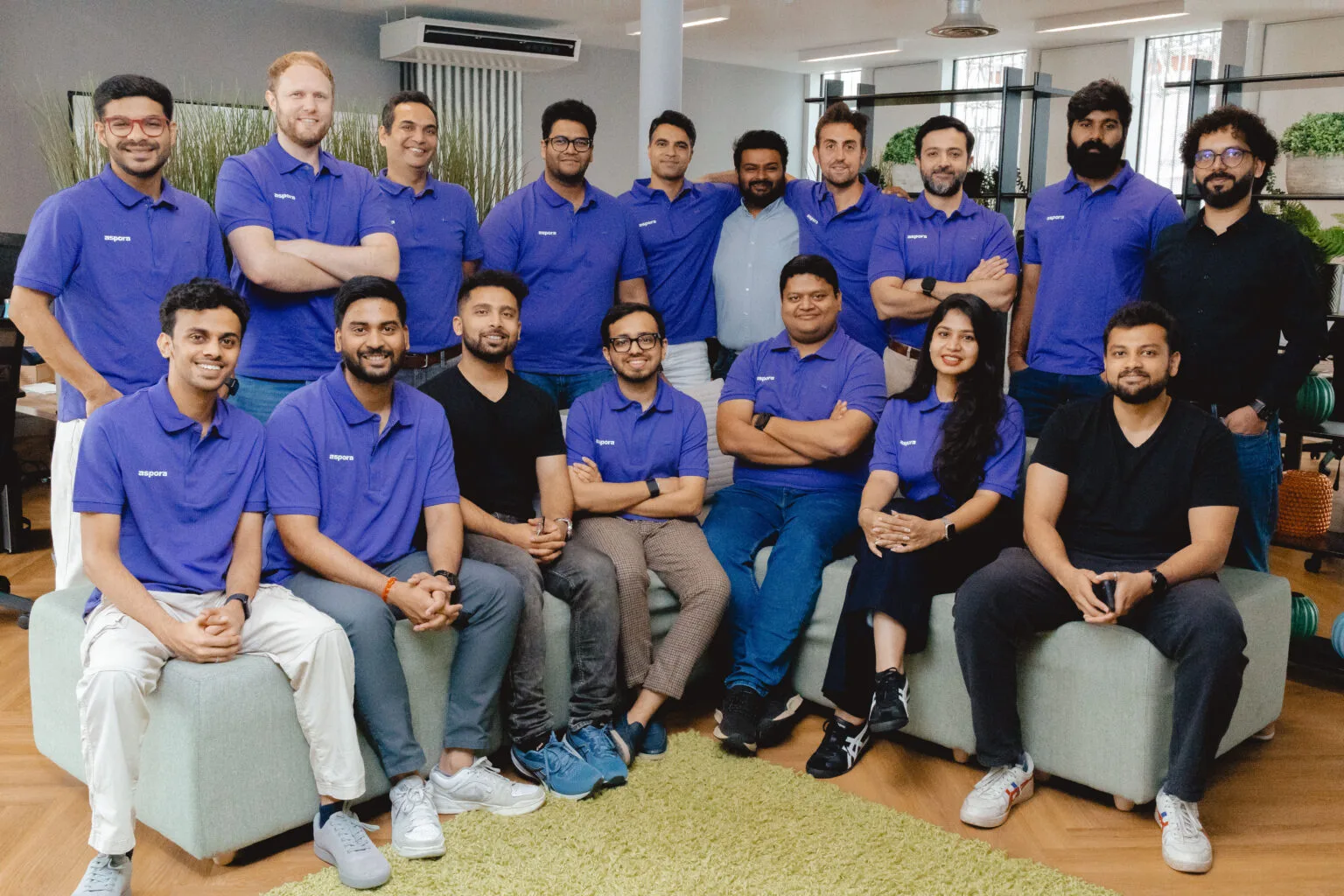(June 19, 2025) It was a moment that stuck with Dubai-based Parth Garg. After moving back to India temporarily, he realised that despite having lived and banked in multiple countries, he couldn’t get a basic credit card. “I have been in India for 9 months now and I still cannot get a credit card despite having a credit history in multiple other countries,” he recalls. For someone who grew up in Dubai and studied at Stanford, it was a frustrating reminder that the global lives of immigrants often don’t match up with how traditional banking systems work. “Moving money between them is a nightmare. It’s always a hassle to pay in a new country,” says Garg, describing the frustration that planted the seeds of his mission. Little did he know, those personal pain points would lead him from Stanford’s classrooms to the forefront of fintech, as the founder of Aspora — a startup transforming banking and remittances for the Indian diaspora.

Parth Garg
Growing Up Global in Dubai
Parth Garg was born to Indian parents and grew up in the UAE, where he was exposed to both Indian culture and global ideas. At home in Abu Dhabi, conversations about business and finance were common, which sparked his interest in entrepreneurship early on. By high school, he had already started his own organisation. He was equally drawn to science and the arts — excelling in academics, representing the UAE at the Asian Physics Olympiad, and enjoying theatre and cricket. His wide range of interests eventually took him to Stanford University, opening up new opportunities far from home.
Yet, living abroad only underscored the cross-border financial headaches he’d known since childhood. “I grew up in the UAE, so I’ve been a part of the diaspora and an immigrant for all my life,” Garg once said. “It’s something that resonates with me.” He saw firsthand how Non-Resident Indians (NRIs) like himself had to navigate two financial worlds – one in their homeland and one abroad – with little connecting them. This awareness would later become the foundation of his startup, but first came a pivotal stint in Silicon Valley.
Stanford and the Call to Adventure
When Garg arrived at Stanford to study physics — and even took some theatre courses on the side — he enjoyed the mix of ideas and people from all over the world. But despite the exciting environment, he couldn’t ignore a problem that kept bothering him. Every time he went back home or dealt with banks, he was reminded how difficult it was for people like him — immigrants and NRIs — to manage their money. Opening an NRI account meant dealing with too much paperwork. Sending money home came with high fees. And keeping track of multiple bank accounts across countries was always a challenge.

In 2021, at just 21 years old, Parth Garg made a big decision — he dropped out of Stanford to solve the problems he had experienced firsthand. “At that moment, it felt like staying in college wasn’t the right choice. I wanted to take a calculated risk and build something that could help others,” he says. With strong support from his family, he set out to create a global neobank designed for immigrants like himself.
Parth moved to Silicon Valley to dive into the startup world and joined Y Combinator’s Winter 2022 batch with his early-stage venture, which was then called Vance. His idea was bold — to build one simple app that would let people manage their finances across countries without the usual hassle. “The idea came from my own experiences,” he says, remembering how difficult it was to manage accounts in different countries. He imagined an app where NRIs could open a bank account, send money, get credit in a new country, and invest back home — all in one place. It was a solution born from frustration, and he was ready to make it real.
The Birth of Aspora – Banking for the Diaspora
Parth’s startup journey began by focusing on one of the biggest problems: sending money home. India receives more than $100 billion in remittances each year, but the process is often expensive and slow. Traditional services charge high fees — sometimes 2 to 4% — which adds up to billions lost by migrant workers and professionals. Other financial services weren’t much better. Opening an NRI bank account could take weeks and required paperwork and notarizations. Investing or borrowing across countries was just as complicated, with no easy way to manage everything in one place.
Garg saw an opportunity to build a better way. “While multiple financial products for NRIs exist, they don’t know about them because there is no digital journey for them,” he observed. “They possibly use the same banking app as residents, which makes it harder for them to discover products catered towards them.” In 2022, he officially launched Aspora (initially under the name Vance) from London, aiming to become a financial super-app for Indians abroad.

Aspora started with one simple but powerful feature: fast, low-cost money transfers. Using modern fintech tools, the app allowed users to send money at the real “Google rate” — the interbank exchange rate — with little to no fees. For example, someone sending money from the UAE to India pays nothing, while a transfer from the UK costs a flat £3, often cheaper than services like Wise or Remitly. Behind the scenes, Aspora uses stablecoins to make transfers quick and transparent. But for users, it’s straightforward — the money arrives in minutes, with no hidden costs.
As the platform grew, Aspora added more features to help users manage their finances across borders. Customers in Europe and the Middle East could hold Indian rupee accounts and invest in mutual funds back home. Plans were also set for multi-currency accounts that earn interest, easier NRI account openings, and credit and insurance products designed for immigrants. Garg’s own experience trying to access credit in a new country shaped much of this. “We want to use remittances as a wedge and build all the financial solutions that the diaspora needs, including banking, investing, insurance, lending in the home country, and products that help them take care of their parents,” Garg says of Aspora’s mission. One investor called it “the complete financial operating system for NRIs.”
Impact and Milestones
Garg’s venture quickly started gaining momentum. What began as a two-person team during Y Combinator soon grew into a global company with teams in London, Dubai, and Bengaluru — cities that had shaped Parth’s own life. By mid-2025, Aspora had more than 250,000 users, most of them Indians living abroad. In just one year, users transferred over $2 billion through the platform — a sixfold increase that showed how quickly Aspora was growing. The service also helped users save over $15 million in fees that would have otherwise gone to banks and remittance providers. “These aren’t just numbers to us,” a company spokesperson said. “They represent real families staying connected, students financing their education, and entrepreneurs linking their roots with new opportunities.

Aspora’s rapid growth soon caught the attention of major investors. In late 2022, Garg raised $5.8 million in seed funding to kick things off. As of June 2025, Aspora has raised about $99 million in total funding and is valued at around $500 million — impressive numbers for a company less than three years old. In April 2025, the company changed its name from Vance to Aspora to reflect its broader goal of supporting diaspora communities around the world, not just Indian expats.
Through all this, Garg has stayed focused on his mission. “The latest fundraise allows us to accelerate our mission of building a truly global financial ecosystem for diaspora communities,” he said. “We’re just getting started — our users deserve modern financial infrastructure that works across borders.”
The Road Ahead: Empowering the Global Indian
Parth Garg and his team are now preparing to take Aspora to the next level. After starting with Indian expats in the UK and UAE, the company is set to launch in the United States by July 2025 — one of the biggest remittance corridors to India. Plans are also underway to expand into Canada, Singapore, and Australia by the end of the year, following the diaspora to wherever they live and work. Each new country brings its own set of rules and banking regulations, but Garg and his team are committed to building one step at a time.
Aspora’s features are also growing. Soon, users will be able to pay utility bills, rent, and credit card dues in India directly through the app — a big help for those supporting family or managing properties from abroad. The company is also adding a fixed deposit option, so Indians living overseas can save money in India with good interest rates and less hassle. By the end of the year, Aspora plans to launch a full NRI bank account service that takes just minutes to open, instead of days or weeks. True to Garg’s focus on the full diaspora experience, the team is also working on services to help people care for parents back home, such as regular health checkups and emergency support.
Even with rising competition in the global fintech space, Garg believes the key is to stay focused. By “building trust through a killer wedge product” before expanding, he’s helping solve problems he knows personally. What began as a personal challenge has grown into a platform that supports thousands of NRIs — helping them send money, invest, and manage their finances across borders.
From a childhood in Dubai, where talk of money and business was common at the dinner table, to leaving Stanford to follow his vision, Parth Garg has come a long way. And with Aspora, he’s helping a global community move forward with him — one smart financial step at a time.
- Follow Parth Garg on LinkedIn
ALSO READ | Nandan Nilekani: From Infosys to Aadhaar and UPI, the visionary behind India’s digital revolution



